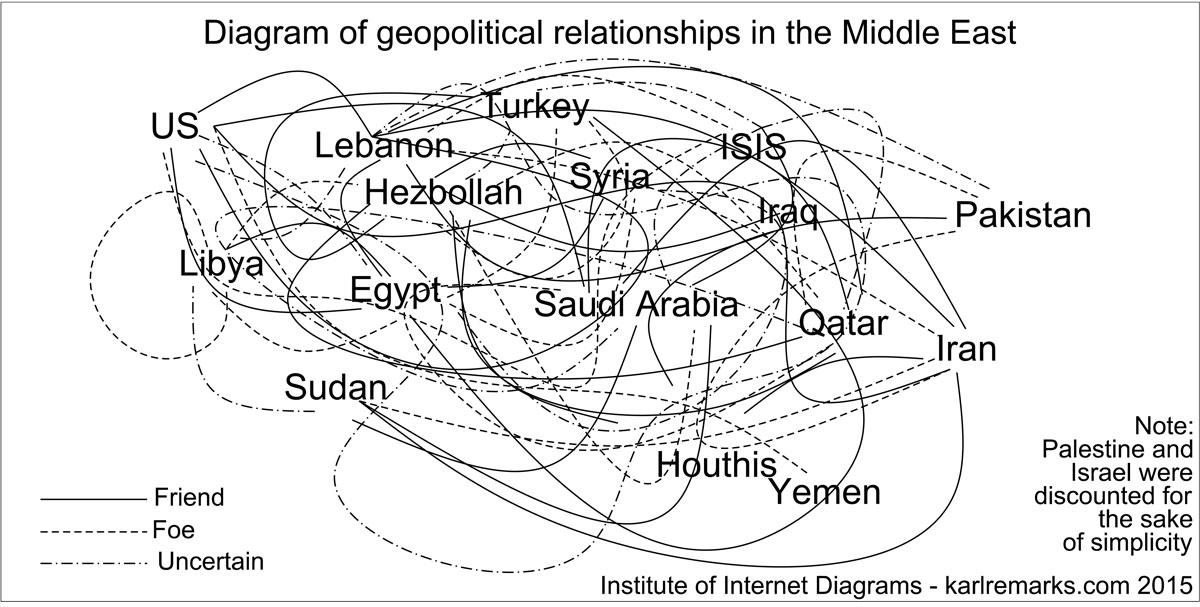Rizal Philippines
December 7, 2015
1. The Western coalition has joined forces to go on bombing missions vs ISIS at Syria. France and UK, KSA have been on various air strike missions. Russia has done likewise to support Assad, and they are in cross currents and further muddling the issue. ISIS was even revealed as creation of CIA as counter vs other terror groups before (and even vs Syrian Pres. Assad) Or is it KSA behind ISIS?
Iran's first female vice president, Masoumeh Ebtekar, singled out the United States and the CIA as the progenitor of ISIL. And Iran's former Iranian minister of intelligence, Heydar Moslehi, went further by arguing that Mossad, MI6, And CIA created ISIL, or Daesh.
Sudan's President Omar al-Bashir agreed. He told Euronews this week that America's CIA and Israel's Mossad are behind Boko Haram and ISIL.
"I said CIA and the Mossad stand behind these organisations. There is no Muslim who would carry out such acts," he said. (Bashir also blames the US and Israel for the ICC's 2013 warrants accusing him of responsibility for war crimes, crimes against humanity and acts of genocide.)
Others believe the opposite; that it's actually Iran that's culpable. Former Syrian National Coalition President Ahmad Jarba insisted that Iran is behind rise of ISIL.
Could "Quds Force be behind the ISIL in Iraq?" asked one observer.
And yet, more than a few argued that the Saudi Arabia stood behind ISIL. Then Iran Prime Minister Nouri al-Maliki, claimed in a statement last summer that the Saudis
2. The struggle in ME and ISIS is an offshoot of the long standing feud between two break away groups of Muslims - the Sunnis who are more in number and Shi ites who are the minority. Of the 1.6 billion Muslims, 90% of them are Sunnis mostly scattered in the Middle East.
The Sunnis are the Orthodox traditionalist Muslims. Thus they emphasize codified system law and tradition. The Sunni religious teachers leaders and teachers are under state control.
The Shiates are the Shiat Ali, or the party of Ali (origin of name of Mohammed Ali), the son in law of Mohammad, who was supposed to be next leader of the Muslims after the latter's death (he did not will a successor) However he was killed as well as successors. Thus Shiites religion is marked by grieving and martyrdom. They number about 140 to 170 million and are the majority in Iran, Iraq, Bahrain, Azerbaijan and, according to some estimates, Yemen. There are large Shia communities in Afghanistan, India, Kuwait, Lebanon, Pakistan, Qatar, Syria, Turkey, Saudi Arabia and the UAE.
Take note that there are more Sunnis than there are Shi ites.
In govts ruled by Sunnis, the Shi ites are seen as the poorest and poorest. Some Sunni leaders preach hatred of Shi ites.
In 1979, the Shi ites launched a Shia extreme agenda that challenged the conservative Sunni regime.
Which terrorist groups are they affiliated with?
"During the civil war in Lebanon, Shia gained a strong political voice because of the military activities of Hezbollah.
In Pakistan and Afghanistan, hardline Sunni militant groups - such as the Taliban - have often attacked Shia places of worship.
The current conflicts in Iraq and Syria have also acquired strong sectarian overtones. Young Sunni men in both countries have joined rebel groups, many of which echo the hardline ideology of al-Qaeda.
Why are there conflicts at ME?
Struggle for power rather than religious conflicts:
"In Iraq, a Sunni minority ruled over the Shiite majority for decades. After the U.S. invasion, Saddam Hussein -- a Sunni -- was overthrown, and a Shiite government took over. That government proceeded to marginalize the Sunnis, and now some of those disenfranchised Sunnis have gone on to form the so-called Islamic State, or ISIS.
Let's do a quick who's-who in the Middle East: Al Qaeda and ISIS are Sunni Muslim groups. Hezbollah is Shiite.
Osama bin Laden was a Sunni. Syrian President Bashar al-Assad is an Alawite. And the Iranian mullahs are Shiites as well, which helps explain why Iran has gotten involved in the conflict in Syria.
And where does America stand in all this?
Traditionally, the U.S.'s strongest allies in the region have been Sunni powers, like Saudi Arabia, Egypt and Jordan. But now the U.S. is pursuing a nuclear deal with Shiite Iran, and is working alongside Shiites in Iraq to try to destroy ISIS. But at the same time, Washington still supports Saudi Arabia, which is currently bombing Iran-backed Shiite rebels in Yemen. Confused yet?

Thus bombing Syria will not silence the ISIS (Sunnis) who are in long standing conflict with their current govt, and Iraq who have Shi ites as the heads. When the Shi ites took over (after Sadam Hussein a Sunni was toppled) they disenfranchised the Sunnis who later joined the ISIS. And take note the Shiite rebels in Yemen are supported by Shiite led Iran.
Very confusing. (They say it is difficult people who read backwards?!)
And Western countries are unneccessarily drawn into this conflict. US backs Sunni generally KSA, Egypt, Jordan. But US having a deal with Iran on nuclear arms control who are mostly Shi ites is drawing the ire of Sunnis. When US backed Shi ites in Iraq, this naturally angered Sunnis in KSA, Egypt, and Jordan
This we often see suicide bombing directed vs mosques (also of Muslims) and not with other groups.
Unless this intramurals are settled among the Muslims, do you think the bombing will silence the Sunni backed ISIS? (as it has failed to do so with Afghan and Iraq war)
Can this religious power struggle at ME be solved by a bombs and military action? In many forum at BBC and elsewhere, US and Western powers have been criticized for interfering with what is purely domestic affair.
The West is seen as having a very simple and naive understanding of this conflict. What do you think?


